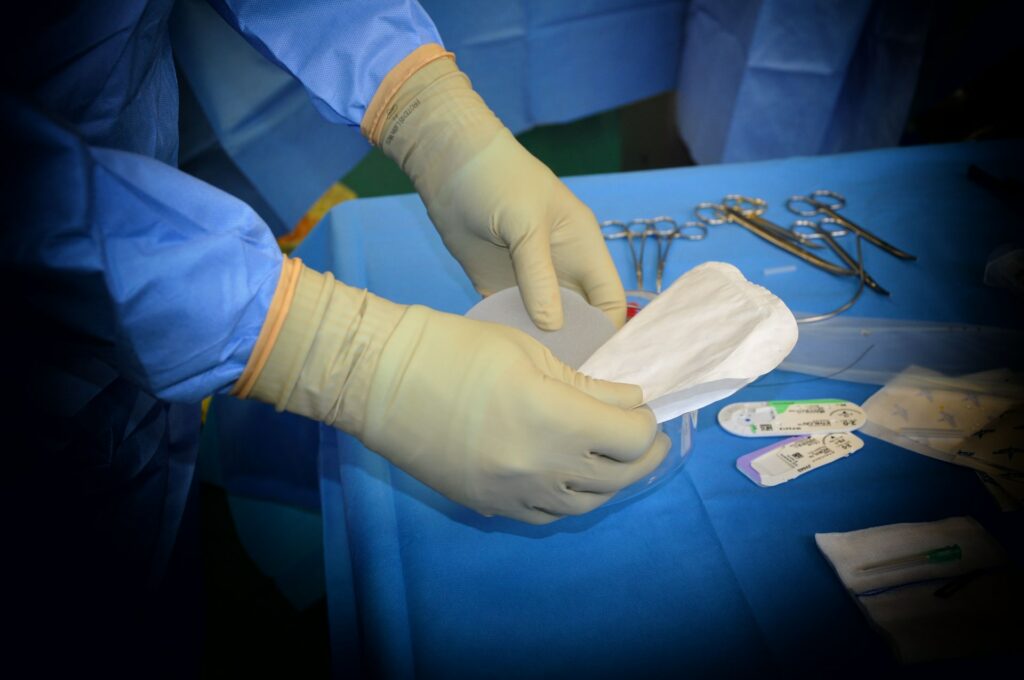Hey Everyone!
Welcome to our comprehensive guide on Internship for Medical Students.
After reading this guide, you’ll have comprehensive knowledge of what Medical Internships are, how you can obtain them, and what to expect during your internship.
In summary, this guide will cover:
- What is a Medical Internship?
- Why should you take on a Medical Internship?
- What do medical Interns do?
- How to get Medical Internship opportunities
Without further delay, let’s get started!
What is a Medical Internship?

If you are an undergraduate student or well into your Medical school program, there might have been a time during your study when you began to have second thoughts about the type of medicine you intend to practice within the medical field.
If that’s the case, attending a medical student internship during the first year of your residency program is a great way to clarify the uncertainty.
Medical Internships are an opportunity to get firsthand experience in a clinical setting, working alongside licensed Physicians and other healthcare professionals.
In addition to Medical internships being an opportunity to gain clinical practice experience, they are a critical step to becoming a fully qualified Medical Doctor in most colleges.
In many Universities, Internships are integrated into the first year of a Residency Program, meaning before a student can officially start their Residency program, they must complete a one-year internship program under the supervision of a Physician.
During this time, interns rotate the various healthcare departments, gaining skills in problem-solving, research, accountability, communication, etc.
With the experience gained from an internship program, medical students can decide whether to forgo a residency program and become a General Practitioner or hone a specialty during the remainder of their Residency Program.
With the purpose of a Medical Internship program established, let’s go more in-depth into why Internship for Medical students are beneficial for your education and career.
Why Should You Take an Internship for Medical Students?

After completing an undergraduate degree and a Medical Doctor Degree (M.D.), students working on becoming Physicians often pursue internships to gain practical experience.
In addition to gaining experience, there are several reasons why it is beneficial to undergo a medical internship, these include the following:
1. It is an essential step to becoming a qualified Doctor
Typically known as Postgraduate Year-1 or PGY-1, the first year of a medical students residency Program involves completing an Internship.
During this time, students receive mentorship from Physicians and get the opportunity to administer patient care and get some off-the-floor experience, such as research experience.
Also, medical internships are often a prerequisite to getting a specialty license.
2. You learn more about your practice
Between earning your bachelor’s degree or journeying through medical school, you might have felt curious about what it’s like to be a Physician working in a healthcare facility.
By taking up an internship opportunity, you’ll be able to experience firsthand what Physicians do daily.
You could also use this opportunity to learn more about your desired specialty, including the types of patients and illnesses Physicians of that specialty have to deal with.
3. Helps identify how you fit into your desired specialty
Choosing a specialty usually lies in how well that specialty fits with your skills, interests, and personality.
By undergoing a medical internship, you get to explore the specialty you’ve been thinking of following up on – while assessing how your skills and personality might fit into that specialty.
Usually, after this time of assessment, you’ll be able to know how to adapt to the clinical settings of your specialty, or you may choose to explore a whole new specialty altogether.
4. You can network with potential employers
It’s imperative to build relationships with mentors, professionals at universities, and internship partners if you want to maximize the potential of an internship.
By attaining and engaging with connections, you stand to better your chances of achieving clinical and research positions.
5. Helps assess your knowledge
Assessing how much you’ve learned in the classroom can best be done by putting it to the test in a clinical setting.
By taking on a medical internship, you’ll be able to review how far you’ve come with your clinical knowledge and practice your existing skills to prepare for your residency program.
Now that you understand the benefits of a medical internship let’s discuss what you’ll be required to do during a medical internship.
What do Medical Interns do?

Internship for medical students involves working under the supervision of Doctors and other medical professionals.
Hence, the roles you’ll be required to perform will be pretty similar to that of a Doctor.
Some medical intern duties include administering physical examinations to diagnose possible illnesses in patients, taking a patient’s medical histories, and providing care to patients while in a healthcare setting.
Other roles that an intern may assist a Physician in fulfilling are educating patients and their families about the patient’s condition and helping patients navigate their stay in a clinical setting.
As part of your internship, you’ll have the opportunity to rotate through various departments.
These include the emergency room, intensive care unit, and the psychiatry and pediatrics department – to understand the different responsibilities within a specific healthcare setting.
When you finally approach the end of your internship period, interns have the choice to focus on the specialty they intend to hone – for example, Dentistry or Pharmacology.
Full-time Doctors supervise all activities during an internship.
When a Doctor isn’t around to manage interns’ daily activities, they are prohibited from treating patients, considering they are still students who do not yet have a complete grasp of the profession.
In fact, for patients to distinguish between Doctors and interns, interns are given shorter white coats to wear during working hours.
After a prospective completes a residency program and attains licensing, they can expect to have significant responsibility when treating patients.
How to Get Medical Internships

The most stressful part of taking up an internship is the process of finding the internship.
Apart from there being limited opportunities each year, the requirements to be eligible to apply for some internships are a handful, making sifting through a list of potential internship opportunities a tiresome process.
Despite this, finding the right internship program for you isn’t impossible as long as you employ tactful techniques – starting with knowing where to look for ideal internship opportunities.
That said, here are a few tips that will set you on the right path to finding an ideal medical internship with ease.
Conduct research on health organizations offering internships
A Google search is an excellent place to start when looking for organizations that offer Medical internships.
From the list of organizations that pop up, look at what internships they currently have on offer and whether they align with your career goals.
Also, make sure to have a read at the organization’s mission statement to determine a person-organization fit and whether you’d see yourself working for them.
Reach out to your network
If you’ve developed a healthcare professional network while taking up medical education, then there is no harm in asking them whether they know of any medical internship opportunities.
You never know who in your professional network might be able to make some helpful suggestions that will lead you in the right direction.
Your Medical School’s job board
Many colleges have a job listing website or pages where job opportunities like internships are listed.
By finding out whether your school has such a resource and then accessing it, you might be able to beat other prospective interns to the best opportunities.
Job websites targeted at Interns
From Internship.com to Internmatch.com, several online listing companies use their platforms to help potential interns find suitable internships.
Take advantage of sites like these so that your net is cast wide enough, thus increasing your pool of opportunities.
With that covered, let’s explore the different types of Medical internships next.
Types of Medical Internships

Although internships usually adopt the same structure, there are a variety of internships that have different end goals in preparing you to become a licensed Doctor.
The various types of internships include:
Pre-med summer internships
Although this isn’t part of the internships offered to medical school graduates because it can potentially impact your college journey during the undergraduate phase of your education, we decided to include it anyway.
A Pre-med summer internship is targeted at undergraduate college students who are currently enrolled in a medical degree program or are well into their degree studies.
With Pre-med summer internship programs, pre-med students can get work experience in a healthcare system and foster medical skills, which will be beneficial as you approach medical school, and near completing your journey to becoming a Doctor.
Some of the duties you can expect to assume as a Pre-med summer intern include helping with research and conducting lab work.
Transitional internships
Medical students who have just graduated from medical school and obtained their initial license by passing the U.S Medical Licensing Examination are eligible to take up the Transitional Internship.
The Transitional internship is a one-year-long internship that allows medical students to experience different departments of a clinical setting.
Typically, with this internship, a Doctor can choose to complete their final license after completing the internship – and then go straight into working as a general practitioner.
Specialty internships
After taking up a transitional internship, a medical student interested in developing a specialty has to complete a residency program, which for many also passes as an extended internship.
Depending on the specialty you’d like to hone, several regulatory associations and organizations like the American Board of Family Medicine will stipulate the number of years a medical student will spend in a residency program for a specific medical specialty.
Once an intern completes the stipulated years, they have to take a board certification examination to become certified in their chosen specialty.
Osteopathic internships
Should you choose to become a Doctor of Osteopathic medicine, your course to obtain an internship will be very different from that of Doctors intending to become General Practitioners.
Instead of taking a transitional internship, prospective Doctors of Osteopathic medicine first need to take and pass the Comprehensive Osteopathic Medical Licensing Examination before applying for Osteopathic internships.
Once accepted into an Osteopathic internship program, Osteopathic students get to experience firsthand what it’s like to work with modern medicine and how to use modern technology to diagnose and treat diseases, to mention a few.
Can You Take Up a Medical Internship Abroad?

Have you ever thought of what it’s like to experience serving patients in a foreign country?
Thankfully, you can experience that as there are several opportunities for medical school graduates to take internships abroad through organizations that facilitate overseas placements.
Several internship programs place medical students in hospitals across developing nations – exposing interns to what it’s like serving patients with low resources.
Like internship programs held in the U.S, interns choose departments they are keen on rotating in to experience various clinical settings at the host hospital.
Abroad internships tend to attract many medical students as it opens opportunities for them to expand their clinical knowledge and create networks other than in their countries of residence.
That said, here is a look at some of the top abroad opportunities for medical students.
Top Abroad Medical Internship Opportunities
While several abroad medical internship opportunities exist, only a handful provide you with enough support to take your medical career to the next level.
Some abroad Medical internships that have worked up good reputations over the years include:
Medical Internships in Spain
While most internship opportunities in Spain target pre-med students, some internships are suitable for advanced medical students, such as medical school graduates.
When applying to take up an internship in Spain, interests, and skills are assessed to find appropriate placements for potential interns.
Medical Internships in Tanzania
There is a wide range of internship opportunities for medical students interested in working in Tanzania, including Radiology Internships, Food and Nutritionist Internships, and Ophthalmology Internships.
The type of placements you’ll be given in the specific field will depend on whether you are an undergraduate student or a medical school graduate.
Medical Internships in Guatemala
Postgraduate medical students are typically placed in internship opportunities in rural areas of Guatemala, working alongside full-time Physicians.
Their internships are mainly suitable for candidates exploring careers as General practitioners or Physicians.
Medical Internships in Costa Rica
Medical Internship opportunities are usually available to Medical students from the Pre-med phases going upwards to work in various clinics and hospitals across the country, observing and assisting healthcare professionals.
In many cases, part of the requirements for securing an Internship opportunity in Costa Rica is to have proficiency in the Spanish language.
Medical Internships in Peru
Despite Medical internships in Peru being more suited toward Pre-med students, it’s worth keeping an eye on should opportunities arise for medical students in advanced stages of their education.
Like in most facilities that we’ve mentioned in this list, interns get the chance to shadow Physicians and General Practitioners while rotating around several departments in healthcare facilities.
Getting the latest on opportunities surrounding the Internships mentioned above requires medical students to regularly visit the websites of placement organizations such as Work the World and International Volunteer HQ.
Do Medical Internship Students Earn Salaries?

Typically, medical internship students earn salaries for the time spent assisting Physicians and working with teams of healthcare professionals.
While students get paid for their duties, there isn’t a regulated amount you can expect to earn by securing an internship.
The type of placement you receive and the location of the healthcare facility you will work at determine an intern’s pay rate.
Nonetheless, several job listing websites have published their estimates of medical internship salaries based on the wages of job postings on their sites.
For example, Zippia records the Medical Internship salary as an average of $63 000 annually.
Hence, reviewing a host of salaries posted by Job recruitment sites will surely be a great starting point if you want a better scope of what medical interns earn.
Conclusion

If you are keen on becoming a Medical Doctor, you need to acknowledge that you will spend a crucial part of your journey taking up internship programs.
While being part of an internship or training program after high school or during your undergraduate education level will be entirely up to you, postgraduate internships are typically compulsory.
During your postgraduate medical internship, you’ll get to spend time in medical facilities like medical centers engaging with various patients under the supervision of a Physician.
Through this, you’ll also better understand the specialty you’d like to focus on during your career.
With internships being a vital part of becoming a Medical Doctor, we hope this guide has provided more clarity into what they are and what to expect from them.
All the best!
FAQs

Does internship look good for medical school?
Pre-med students gain essential healthcare skills and hone their knowledge of their careers by doing an internship. Through rotations, postgraduate Medical internships allow medical school graduates to determine which specialty they want to focus on during their residency program. Furthermore, postgraduate Medical internships are a prerequisite for obtaining board certification.
How much do medical interns get paid?
According to Zippia, Medical Interns get paid an annual average salary of $63 000. However, Interns can expect their wages to vary from the amount stipulated because a Medical intern’s salary is determined by the placement they attain, the location where they work, and the healthcare facility that employs them.
Are there Medical internships for undergraduates?
Yes, there are. Medical Internships for undergraduates are known as Pre-med summer Internships. They are often offered to students during summer breaks. During summer internships, pre-medical students gain experience working in a healthcare setting such as a public health or community health setting or a biomedical research setting.
How much does a surgical intern make?
According to Indeed, the average annual salary of surgical Interns is $61 200.However, this amount may vary depending on where a Surgical Intern works.
What does a Medical Intern do?
As part of contributing to their professional development, Medical Interns work alongside Physicians and other healthcare professionals to perform supervised duties such as administering patient care. Besides that, interns may conduct research, compile documentation, and record patient histories.
How can I get pediatric internships for undergraduates?
Many Internships for undergraduates are listed on online internship job websites. These websites include Handshake, Internship.com, and Internmatch.com. Once on their websites, search for Internships in your area, and a list of available internships should pop up.
Is internship important for medical students?
Yes. In most states and with most colleges, obtaining an Internship is a compulsory step to becoming a Medical Doctor. Also, internships are crucial as they help Medical Doctors get practical clinical experience, hone their medical skills, and decide the direction they would like to take their careers.
Click on the links below to view other related internships and the career opportunities they offer:
References
American International Medical University
American Association of Colleges of Osteopathic Medicine









